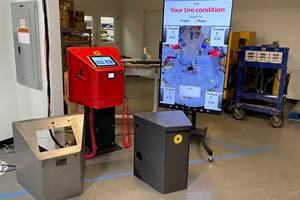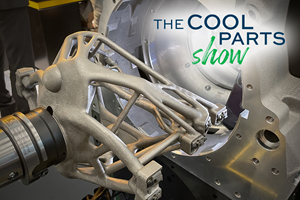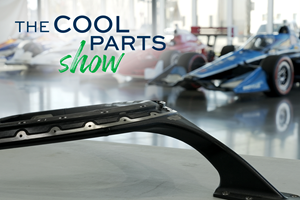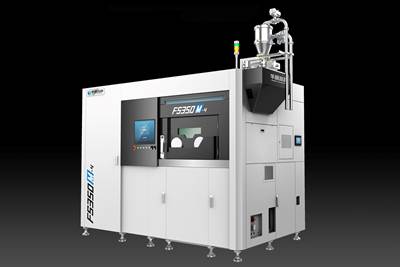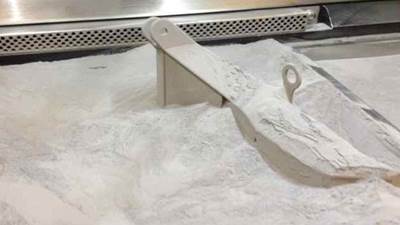Divergent Technologies Acquires Sigma Additive Solutions’ Software, Intellectual Property
The purchase of Sigma Additive's in-process monitoring software and IP will enhance the efficiency and quality control within the Divergent Adaptive Production System (DAPS) platform.
Divergent Technologies Inc., inventor of the Divergent Adaptive Production System (DAPS) and parent company of the performance automotive company CZV Inc. (Czinger Vehicles) has entered into an agreement to purchase from Sigma Additive Solutions all of its in-process quality assurance technology suite assets, including all associated software and intellectual property.
Sigma is a provider of in-process quality assurance solutions for the additive manufacturing (AM) industry. The acquisition of this technology by Divergent will further enhance the efficiency and quality control of its DAPS platform, while strengthening the company's IP coverage in the critical technology area of in-process monitoring.
DAPS is a complete software-hardware production system created to replace traditional design and manufacturing solutions. Given a set of requirements as inputs, DAPS uses AI-driven generative design software to computationally engineer structures, novel materials and AM to materialize structures and automated fixtureless assembly to create multipart assemblies. The system moves seamlessly between manufacturing different structures (such as automotive chassis and aircraft fuselages), enabling zero downtime between builds. The factory’s hardware is product agnostic and entirely software defined.
Divergent uses this system to supply the automotive, aerospace and defense industries with next-generation products as a certified Tier 1 supplier. Its customers include more than seven blue-chip automotive customers, including Aston Martin. Within the aerospace and defense industry, Divergent is actively working with six U.S. government contractors across a diverse range of applications.
The company’s acquisition of Sigma's in-process quality assurance (IPQA) tools (including all associated software and IP) enables Divergent to seamlessly integrate Sigma’s technology into the DAPS software platform, while building on Sigma’s foundational patents.
Additional benefits to Divergent include direct manufacturing cost savings through improved production yields; expedited production time lines and streamlined manufacturing qualification and certification through increased visibility into live manufacturing conditions and as-printed part characteristics. It also means accelerated development of new materials through enhanced parameter measurement and control; and
increased customer adoption in safety-critical and mission-critical applications, enabled by enhanced in-situ monitoring and control.
“This strategic acquisition is of great significance as Divergent deploys DAPS structures across the automotive, aerospace and defense industries. Sigma’s foundational IP centered on in-process monitoring will be integrated into and expanded on within the Divergent portfolio,” says Lukas Czinger, COO and co-founder of Divergent and Czinger Vehicles. “The core software will be seamlessly applied to our additive manufacturing module and will further enhance Divergent's industry-leading additive manufacturing quality management system. Ultimately, this acquisition further supports our confidence in suppling structures for safety-critical and mission-critical applications.”
Divergent says it has found a great home for Sigma's technology and is excited to see Divergent build on the foundational work from Sigma in connection with the DAPS platform. “This is a significant step forward for digital manufacturing quality,” says Jacob Brunsberg, CEO of Sigma Additive Solutions.
The DAPS end-to-end software-hardware production system for industrial digital manufacturing enables customers to design, additively manufacture and automatically assemble complex structures. It is said DAPS transforms the economics and environmental impact of manufacturing complex structures for vehicles of all types by optimizing designs, dematerializing structures and eliminating upfront capital expense.
- Read about Hexagon’s investment in Divergent’s autonomous, sustainable manufacturing. The Divergent Adaptive Production System (DAPS) is a fully integrated software and hardware solution, creating a complete modular digital factory that combines AI-optimized generative design software, additive manufacturing and automated assembly to build lightweight automotive parts and frames.
- Learn about GA-ASI Integrating Divergent’s Digital Manufacturing Process for unmanned aircraft systems. GA-ASI is working to apply Divergent’s data-driven approach to design, fabricate and assemble vehicle structures for manufacturing its line of unmanned aircraft systems.
- Here’s information about Divergent Technology looking at high-volume, optimized automotive production through additive. While some automotive OEMs are using additive here and there, Divergent Technologies is basing its vehicles on 3D printed structures.
Related Content
BMW Expands Use of Additive Manufacturing to Foster Production Innovations
The BMW Group is manufacturing many work aids and tools for its own production system using various 3D printing processes, with items such as tailor-made orthoses for employees, teaching and production aids, and large, weight-optimized robot grippers, which are used for such things as carbon fiber-reinforced polymer roofs and entire floor assemblies.
Read MoreFaster Iteration, Flexible Production: How This Inflation System OEM Wins With 3D Printing
Haltec Corp., a manufacturer of tire valves and inflation systems, finds utility in 3D printing for rapid prototyping and production of components for its modular and customizable products.
Read More3D Printed Cutting Tool for Large Transmission Part: The Cool Parts Show Bonus
A boring tool that was once 30 kg challenged the performance of the machining center using it. The replacement tool is 11.5 kg, and more efficient as well, thanks to generative design.
Read MoreThis 3D Printed Part Makes IndyCar Racing Safer: The Cool Parts Show #67
The top frame is a newer addition to Indycar vehicles, but one that has dramatically improved the safety of the sport. We look at the original component and its next generation in this episode of The Cool Parts Show.
Read MoreRead Next
Bike Manufacturer Uses Additive Manufacturing to Create Lighter, More Complex, Customized Parts
Titanium bike frame manufacturer Hanglun Technology mixes precision casting with 3D printing to create bikes that offer increased speed and reduced turbulence during long-distance rides, offering a smoother, faster and more efficient cycling experience.
Read MorePostprocessing Steps and Costs for Metal 3D Printing
When your metal part is done 3D printing, you just pull it out of the machine and start using it, right? Not exactly.
Read More3D Printed Polymer EOAT Increases Safety of Cobots
Contract manufacturer Anubis 3D applies polymer 3D printing processes to manufacture cobot tooling that is lightweight, smooth and safer for human interaction.
Read More















